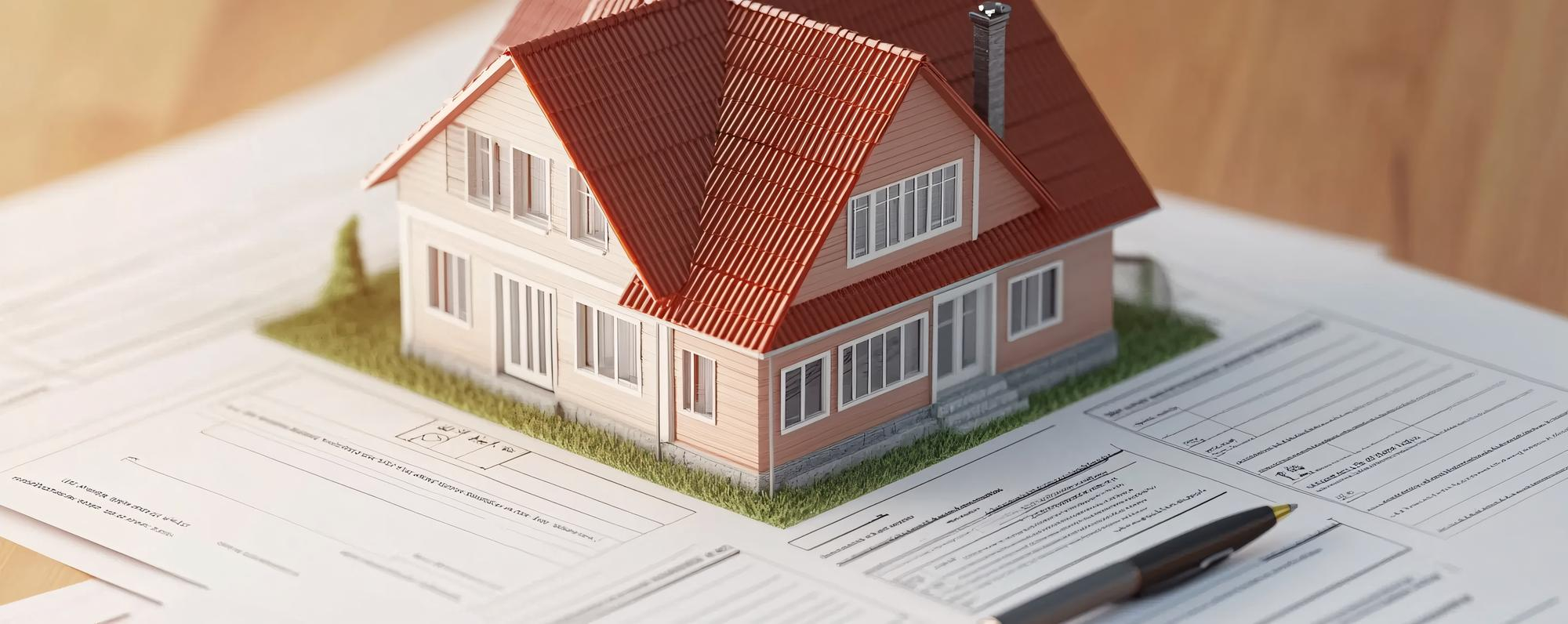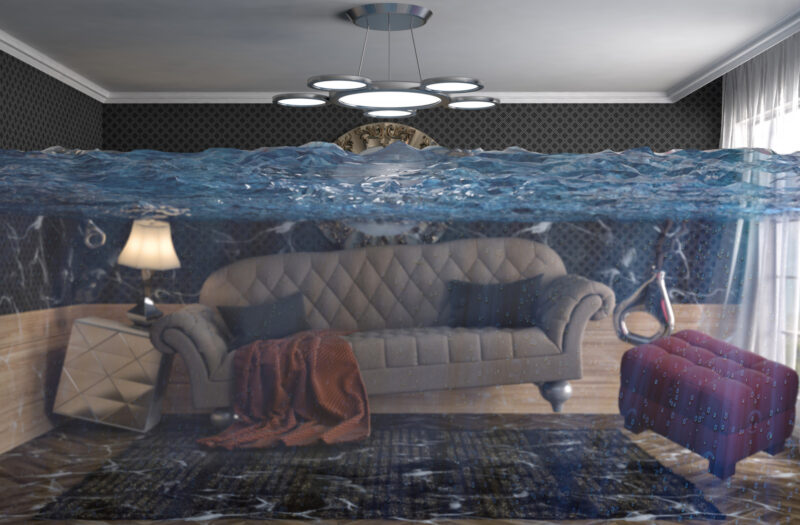Your furniture, electronics, clothing, souvenirs — the value of your personal belongings can quickly add up when you stop to think about how much it would cost to replace everything if you ever needed to.
There are many types of insurance plans available that households may want to consider. When it’s the things inside your home that are worrying you most, then that is where contents insurance can offer some relief. Whether you’re renting your first apartment, moving into the new family home, or simply looking to safeguard the things you’ve worked hard to collect, contents insurance offers financial protection by covering your possessions against theft, damage, and unexpected events.

What is contents insurance?
Contents insurance is a type of insurance that specifically covers the personal belongings inside your home. Your personal belongings, such as furniture, appliances, clothing, and personal devices, are protected in the event of incidental damage or theft.
Contents insurance is not the same thing as building insurance, however, which protects the physical structure itself—the walls, the roof, fixtures, etc. As contents insurance does not cover damage to the building, this insurance cover is typically taken out by renters and strata title owners (i.e. apartment or townhouse owners who secure building insurance through their body corporate and thus, only need to secure contents insurance independently). Whilst there can be some minor differences between contents insurance for homeowners and renters insurance cover, both options typically offer standard coverage for things like liability cover and cover for spoiled food and prescription medication in the event of electrical supply failures.
Renters' insurance can also offer coverage for temporary accommodation if a rental property is made uninhabitable due to an unforeseen event. Contents insurance doesn’t offer this cover; however, under the assumption that contents insurance policyholders may be able to access cover for temporary accommodation under their building insurance.
Note: Whilst strata title owners typically only need to secure contents insurance independently, their body corporate manager should organise building insurance that covers all the strata titles in their complex. If you own a strata title in a self-managed owners corporation, you will need to communicate with your fellow title owners to ensure your building insurance is renewed annually.
What items does contents insurance cover?
There are often a few limits to what contents insurance can cover, depending on the situation. Here are just some of the items that can be covered for damage or loss with a contents insurance policy.
Furniture & Household Items
- Sofas, chairs, tables, beds, wardrobes, and shelves
- Curtains, rugs, carpets, and anything else not permanently fixed to the building
Appliances & Electronics
- TVs, computers, laptops, tablets, and video game consoles
- Kitchen appliances that aren’t built-in, like microwaves, toasters, fridges, and dishwashers
- Telephones, cell phones, cameras, printers, and sound systems
Clothing & Personal Belongings
- Everyday clothing, suits, dresses, shoes, handbags, and accessories
- Sports gear like bikes, scooters, skateboards, surfboards, golf clubs, etc.
Valuables
- Books, toys, and musical instruments
- Jewellery, watches, artwork, antiques, and collectibles
Note: Items like these often have limits per item; expensive items may need to be listed separately or have their own insurance.
Other Household Items
- Tools and equipment kept at home, including professional work tools in the garage
- Food and prescription medication in your fridge or freezer are sometimes covered for spoilage after a power outage, depending on your policy!
What is not covered by contents insurance?
Generally speaking, contents insurance won’t cover wear and tear or any accidental damage to your belongings.
Additionally, some of your belongings might not qualify if they’re deemed too valuable or their total sum in value exceeds the limit per item (i.e. expensive pieces of art or jewellery). Any valuable belongings like these will often require their own separate insurance.
Contents insurance usually won’t cover anything outside the house either. That backyard or balcony space may be a luxury, but keeping belongings outside can come with its own set of risks. Things like grounded plants, fruit trees, shrubs, outdoor furniture, as well as motor vehicles, trailers, caravans, and buggies, likely won’t be covered by contents insurance.
Note: Some insurance providers may offer additional coverage options which allow policyholders to personalise their contents insurance to include cover for added items/events (i.e. valuable items, accidental damage in the home).
What events are covered by contents insurance?
Buying contents insurance depends on making informed decisions. Depending on where you live and what kinds of factors may impact your home, you may be concerned about some risks more than others.
Every insurance provider is different and may offer different coverage based on your area and the type of home you live in. Here are some of the events your belongings could be covered for with contents insurance.
Theft
Most contents insurance policies will cover belongings lost to burglary or theft. Any items lost or damaged during a break-in will be replaced or the value compensated for. Homeowners and renters should stay vigilant and report any incidents of theft to the police, but they can rest assured that not all will be lost thanks to good contents insurance.
Flood
Items damaged or destroyed by sudden exposure to high-speed waters from outside the house are generally covered by contents insurance. Floodwaters from lakes, creeks, rivers, canals, or dams can all be covered. For people living in flood-afflicted zones and states, contents insurance is always a good thing to have in case of sudden water level rises.
Leaks and Explosions
Likewise, many contents insurance policies will cover belongings in the event of water damage from inside the house. Unexpected leaks from gutters, broken pipes, baths, toilets, fixed heaters, gas boilers, and cooling systems may all be covered. A good insurance policy will also cover explosions from electronic devices, too.
Fire
Contents insurance will cover your belongings in the event of fire damage from a bush fire, kitchen fire, or electric fire, as well as damage from smoke or soot. Proper fire safety should always be practised, with smoke alarms inspected regularly and any emergencies reported to your local authorities by calling 000.
Natural Disaster
Due to climate change, more and more homes will likely face a higher risk due to increased inclement weather. Many natural disasters are covered by contents insurance policies.

Note: Normal weather events such as rain, hail, lightning, snow or winds are usually covered, as well as more extreme, rare events such as earthquakes and tsunamis.
Animal Damage
In some even rarer instances, contents insurance can cover damage caused by an animal that isn’t usually kept on your property, like a wild animal or a visiting friend's or family member's pet. This does not usually include pests like rodents, insects, or birds; however, but may include that possum in the attic.
Your contents insurance premium will be determined based on a variety of factors and the type of policy you choose. With a combination of risk and personal details, here are just some of the key factors that will count towards calculating your premium.
Sum the value of your belongings
In a contents insurance policy, the sum of your values is what gets insured. You’ll essentially need to estimate how much it would cost to replace everything you own if it were destroyed or damaged. The higher the total value of your contents, the more it will cost to insure.
The location of your property
Your suburb and postcode play a big role in helping determine your premium. Insurers determine value by looking at local crime rates, flood or bushfire risk, and even how close you are situated to emergency services like ambulance dispatches, hospitals, and fire and police stations.
Note: Living in higher-risk areas will usually result in a higher premium; when the risk is low, the lower the premium.
Your home’s security features
Homes with alarms, deadlocks, cameras, and secure entrances may get lower premiums because they reduce the chance of theft. The cost of a robust security and alert system may be offset by cheaper contents insurance! Also, in the event of theft, home invasion, or other incidents, video footage would be helpful for any kind of insurance claim.
Your property type
Living in a freestanding house, apartment, or townhouse can influence your premium. Apartments may be seen as lower risk for burglary but higher risk for things like water damage from neighbours. Older houses may cost more to insure, too, since their infrastructure may be deemed more prone to risk than a newer build.
Your claims history
If you’ve made a lot of insurance claims in the past, then insurers may take notice. Having a lengthy insurance claims track record may push your contents insurance premium up in price if insurers think you are a risky customer.
Your excess amount
Your excess is the amount you agree to pay when making a claim. By choosing a higher excess, you can usually lower your premium.
This may mean you end up paying more out of pocket when and if you claim, but you may not lose as much each pay cycle. Insurers may offer some options to play around with what you pay and when.
Discounts and bundles
At the end of the day, insurance companies are looking to secure you a deal. You may be able to score a sweet bargain by bundling your contents insurance with your house insurance or adding in bonus landlord insurance if it suits. Keep an eye out for what deals and discounts are being offered to people in your postcode.

Do you need contents insurance?
The prudent homeowner or renter may want to consider various insurance plans to maximise their home's protection. And for most of us, the belongings inside our homes are worth far more than we realise, the total value often adding up to tens of thousands of dollars.
Thankfully, with a suitable contents insurance policy, you can rest easy knowing the value of your personal belongings is protected against most unfortunate events. With a little due diligence and some practical policy shopping, you should be able to find a contents policy that ticks all your coverage boxes.


















